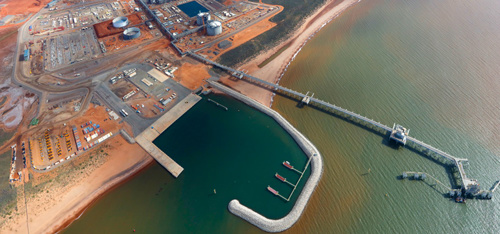The downstream rundown: In case you missed it 6/24
In cased you missed any downstream news, here are the top stories from last week.
Neste, Covestro and SK geo centric cooperate to create value chain for renewable attributed MDI in APAC
Neste, Covestro and South Korean petrochemical company SK geo centric are cooperating to enable the production of a major polyurethane raw material based on renewable raw materials via mass balance.
The cooperation will see Neste provide SK geo centric with renewable Neste RE, an ISCC certified feedstock for polymers and chemicals made from 100% renewable raw materials such as waste and residue oil and fats. SK geo centric will process this feedstock into benzene at the company’s facilities in South Korea and supply it to Covestro to use as raw material for methylene diphenyl diisocyanate (MDI) at its site in Shanghai, China. MDI is a key raw material for the manufacture of rigid polyurethane foam, which is a well-proven insulating material for buildings and used in the cold chain helping to save CO2 emissions and reduce energy consumption during its product life.
Sinopec Shanghai Petchem shut crude, ethylene units after fire
Sinopec Shanghai Petrochemical Co has shut its crude oil refining and ethylene units to evaluate hidden safety risks after a fire on Saturday that hit a chemical facility, a company spokesperson said on Monday.
The spokesperson did not specify the duration of the shutdown but said the firm will ensure stable domestic fuel supplies.
The Shanghai-based plant, controlled by state refiner Sinopec Corp, operates 16 MMtpy (320,000 bpd) crude oil refining capacity and 700,000 tons of ethylene capacity annually.
First flight in history with 100% sustainable aviation fuel on a regional commercial aircraft
Regional aircraft manufacturer ATR, Swedish airline Braathens Regional Airlines and sustainable aviation fuel (SAF) supplier Neste collaborated to enable the first ever 100% SAF-powered test flight on a commercial regional aircraft. The test flight further supports aviation’s decarbonization targets and acceleration of SAF certification. When used in neat form Neste MY Sustainable Aviation Fuel reduces greenhouse gas emissions over its life cycle by up to 80%* compared to fossil jet fuel use.
This historic test flight took place in Sweden and is part of the 100% sustainable aviation fuel (SAF) certification process of ATR aircraft that started in September 2021 in cooperation with Braathens and Neste and should be completed by 2025. It has been the latest in a series of successful ground and flight tests on the ATR 72-600 prototype aircraft performed at the beginning of 2022, including flights with 100% SAF in one engine, and today was the first time it was done with 100% SAF in two engines.
Technip Energies Online Exclusive: The benefits of homomorphic encryption: A technological enabler for digital services to operations
Among the cryptographic technologies under development in various industries, homomorphic encryption possesses the attractive feature of allowing computation within the encrypted domain. Encrypted data cannot only be transferred and stored, but also used in the secure encrypted state. This state-of-the-art technology evolved rapidly over the past decade with new breakthroughs every year since the first functional implementation in 2009. The technology already is proposed for face recognition and in other domains where a high level of privacy is mandatory.
This article presents the main principles of homomorphic encryption. It explores benefits that can be leveraged from this technology for the energy industry. It also provides information on the specific challenges faced in its implementation within industry.
VTT and Neste to build an integrated e-fuels demonstration facility for CO2 capture, green hydrogen and e-fuels production
Power-to-Liquids technologies are on their way to commercialization in scale. E-fuels offer a way to expand the carbon-neutral transport fuel pool beyond biomass-based renewable fuels to replace fossil fuels in existing internal combustion engines. The end product is a transportation fuel suited for aircraft, ships as well as heavy and light road vehicles.
Development of high temperature electrolysis, CO2 capture, and hydrocarbon synthesis technologies have been completed in Business Finland funded Veturi E-fuel research project and the integrated technology is now ready for implementation. VTT and Neste have agreed to build a technology demonstration facility at VTT Bioruukki Pilot Centre, Espoo.
Brazil's Petrobras buys first cargo of Guyanese crude for refining
Brazilian state-controlled oil company Petrobras has bought its first cargo of Guyanese crude for refining domestically, the company told Reuters, as South America's newest producer expands its market reach.
With the start of a second floating production facility in February, Guyana now sells two light and sweet oil grades with plans to pump up to 360,000 bpd this year. The sales are helping the tiny nation rapidly boost its revenue.
Chevron CEO urges Biden to stop criticizing Big Oil, take new approach
Chevron Chief Executive Michael Wirth rebutted White House officials' criticism of the oil industry over energy costs, saying reducing fuel prices will require "a change in approach" by the government.
The letter is the latest in a series of acrimonious exchanges between the U.S. oil industry and President Joe Biden over who is to blame for high fuel prices that have helped drive inflation to 40-year highs.
The White House asked the CEOs of seven refiners and oil companies including Chevron to a meeting this week to discuss ways to increase production capacity and reduce energy prices. Wirth said he would attend.

GTC Vorro Technology expands with licensing division
GTC Vorro Technology (GTC Vorro), a turn-key provider of environmental services and process technologies to oil & gas, refining and petrochemical companies, has expanded with the launch of its technology licensing division.
The company’s commercial portfolio in the gas production, refining and petrochemical process industries is now served via two divisions, Environmental Services and Technology Licensing. Along with providing full-service sulfur removal and H2S management, the newly expanded company offering will include process technology licensing in the refining and petrochemical sectors. Areas of application include gasoline conversion to petrochemicals, non-traditional feedstocks into fuels and petrochemicals, and specialty products from steam cracker pygas such as hydrocarbon resins.
TotalEnergies says it's prepared for strike at French refineries
TotalEnergies has taken logistics measures to make sure its network of petrol stations and its clients will be sufficiently supplied throughout the weekend despite a strike hitting its French oil refineries on Friday, a spokesman said.
The CGT union, which wants an immediate increase in wages to compensate for rising inflation, has called for the 24-hour strike after talks with CEO Patrick Pouyanne fell through.
Novoshakhtinsk refinery resumes operations after fire
The Novoshakhtinsk oil refinery in the south of Russia resumed operations after a fire caused by a drone attack on June 22, two sources familiar with the matter told Reuters.
The refinery in the Rostov region said the first of two drones flying from the direction of Ukraine struck at 8.40 a.m. (0540 GMT) on Wednesday, hitting a crude distillation unit and triggering a blast and ball of fire.








Comments